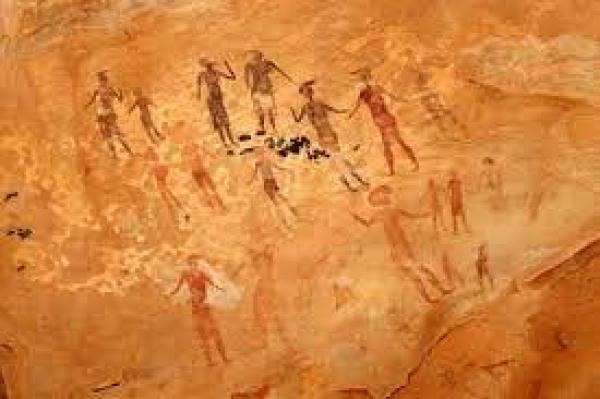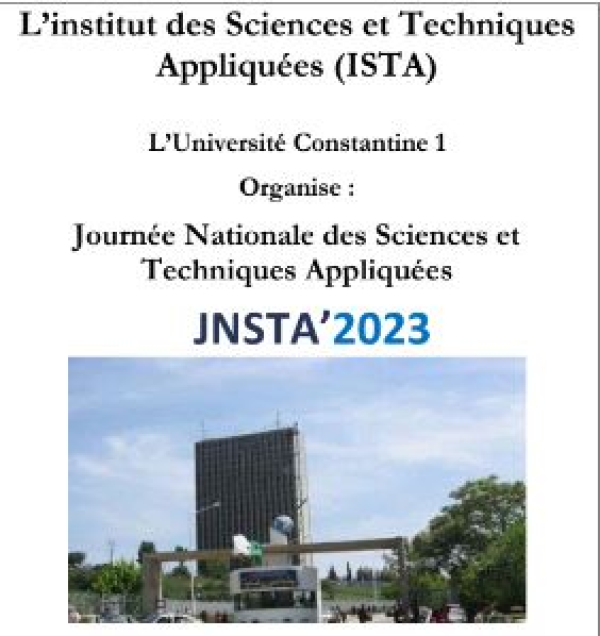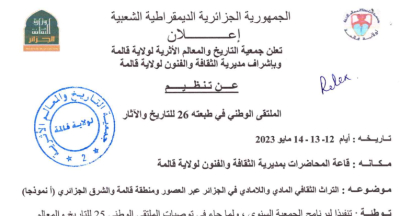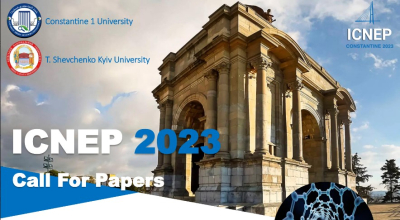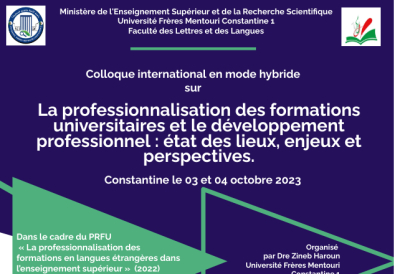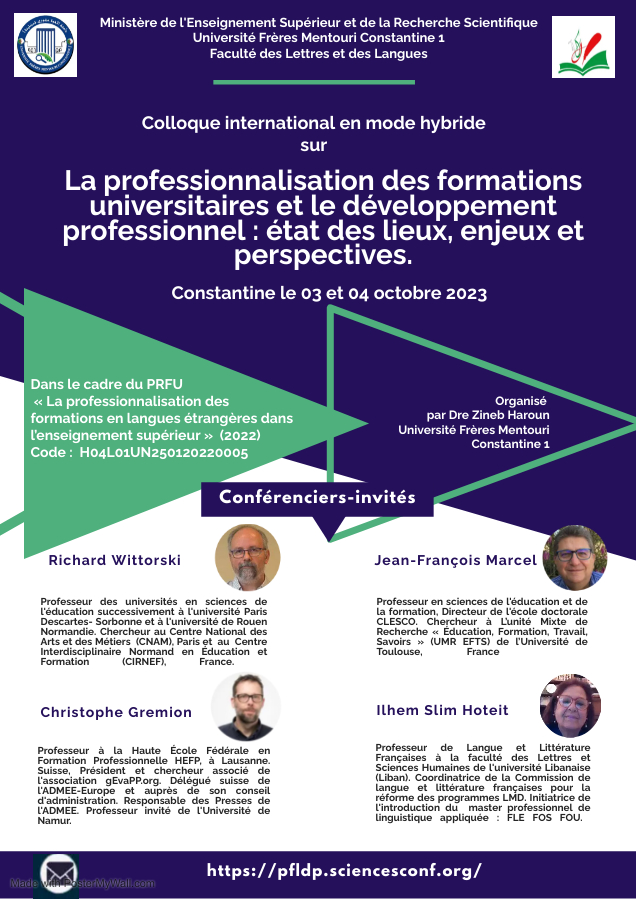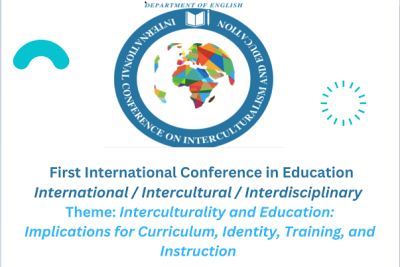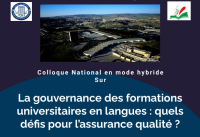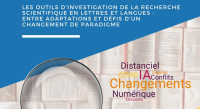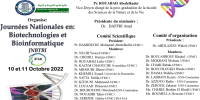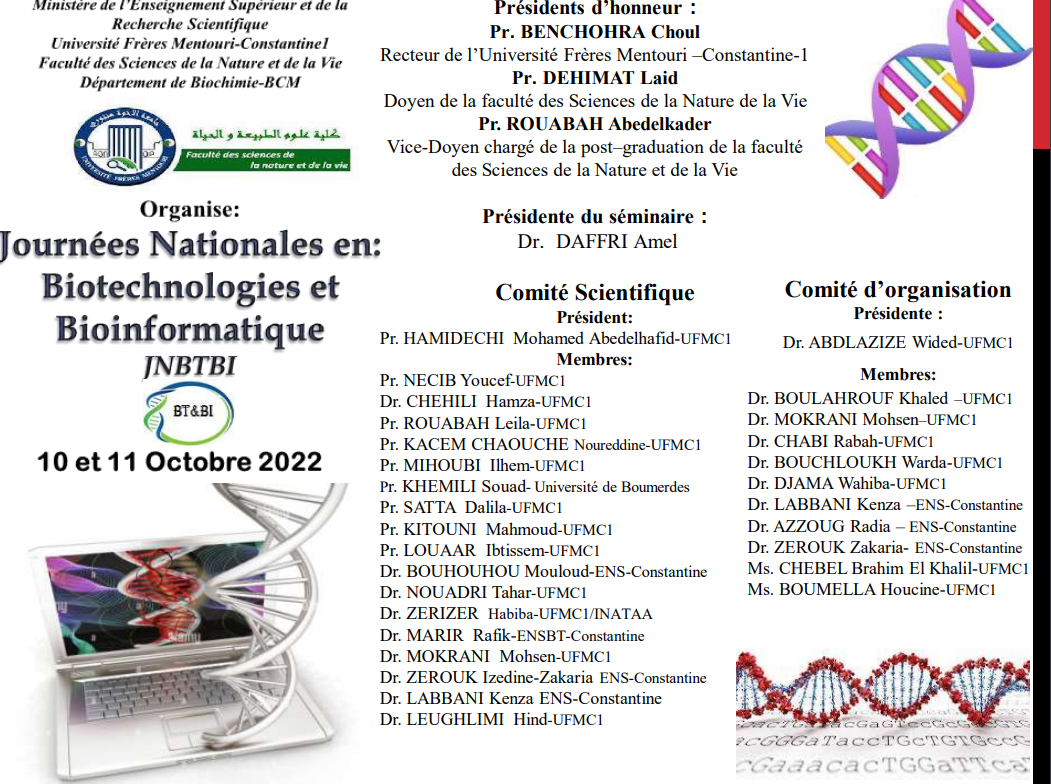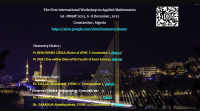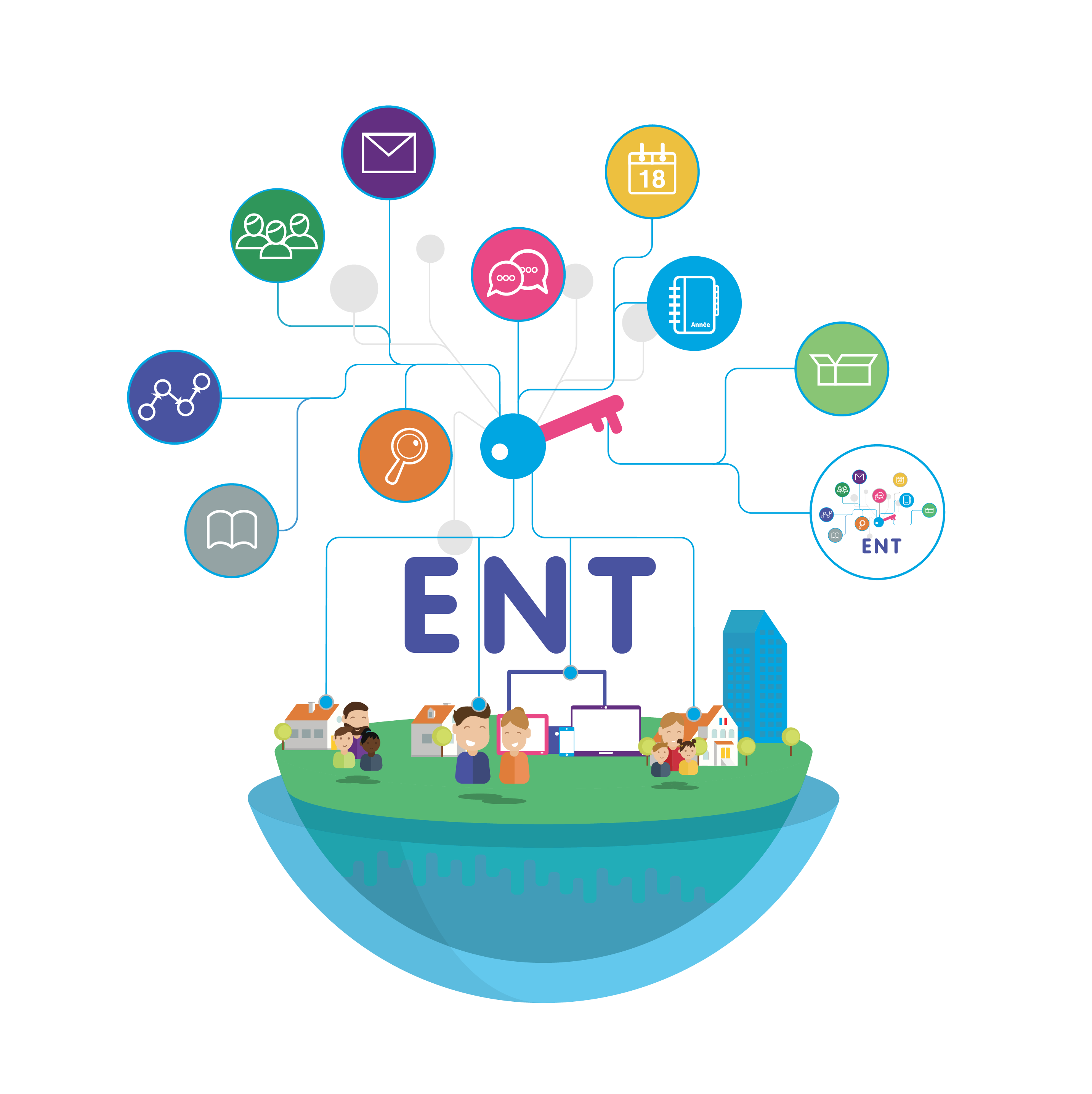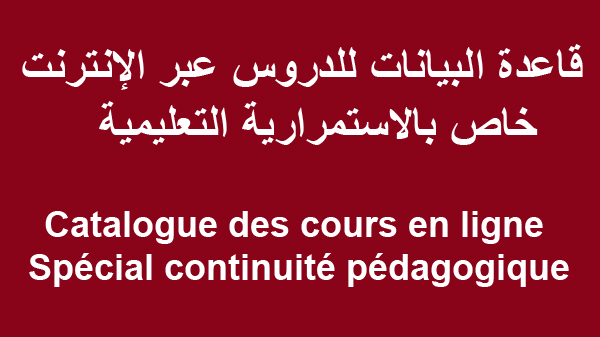
Call for papers 36
Call for Applications PHC-TASSILI+2024 Projects
Sunday, 27 August 2023 11:40 Written by Redaction web 3Call for Applications
PHC-TASSILI+2024 Projects
The call for applications for PHC-TASSILI 2024 projects is now open.
The deadline for submitting the paper dossier to the Vice Rectorate in charge of external relations, cooperation, animation, and scientific events is September 21st, 2023.
For more information, please refer to the project call on the link mentioned below:
https://www.mesrs.dz/index.php/fr/2023/07/appel-a-projets-dans-le-cadre-du-programme-tassili-2024/
Journée Nationale des Sciences et Techniques Appliquées JNSTA’2023
Tuesday, 04 July 2023 15:29 Written by Redaction web 3Journée Nationale des Sciences et Techniques Appliquées JNSTA’2023
الملتقى الوطني في طبعته 26 للتاريخ و الاثار ايام 12، 13، 14 مي 2023
Sunday, 23 April 2023 15:43 Written by Redaction Web 1The 2 nd International Conference of Nanotechnology for Environmental Protection and Clean Energy Production
October 2023
Constantine, Algeria
We warmly welcome you to submit papers covering all aspects of nanotechnology and renewable energy for the 2nd International Conference of Nanotechnology for Environmental Protection and Clean Energy Production. The conference is scheduled to take place on October 09-10, 2023, in Constantine, Algeria.
All accepted papers will be published in an indexed journal.
Research areas
- Physic-Chemical nanomaterials science
- Nanoscale physics
- Nanocomposites and nanomaterials applications
- Solids and structures
- Renewable energy
- Nanoparticles
- Metallic and polymer materials
- Eco-friendly materials and nanocomposites
Honorary Chair
- Pr. A. Bouras
Conference Chairs
- Pr. S. Hamamda
- Pr S. L. Revo
Invited Lecturers
- Pr. Yu. I. Sementsov
- Pr. S. G. Nedilko
- Pr. K. O. Ivanenko
- Pr. A. Mefteh
- Pr. K. Chetehouna
Paper Submission
Prospective authors are invited to submit their papers written in English: The full papers (in docx or pdf format) should be submitted in IEEE Template.
https://cmt3.research.microsoft.com/ICNEP2023
Registration Fees
Ordinary Participants: 10000 DA
Ordinary Students: 7000 DA
Maghreb participants: 160 Euros
Foreign Participants: 300 Euros
Contact : This email address is being protected from spambots. You need JavaScript enabled to view it.
Important dates
Paper submission Deadline: Aug 15, 2023
Notification of acceptance: Sep 10, 2023
final Paper submission: Sep 20, 2023
Conference date: Oct 9-10, 2023
LA PROFESSIONNALISATION DES FORMATIONS UNIVERSITAIRES ET LE DÉVELOPPEMENT PROFESSIONNEL: ÉTAT DES LIEUX, ENJEUX ET PERSPECTIVES
Sunday, 09 April 2023 13:05 Written by Redaction Web 1international conference is an intellectual and educational
Sunday, 09 April 2023 12:59 Written by Redaction Web 1
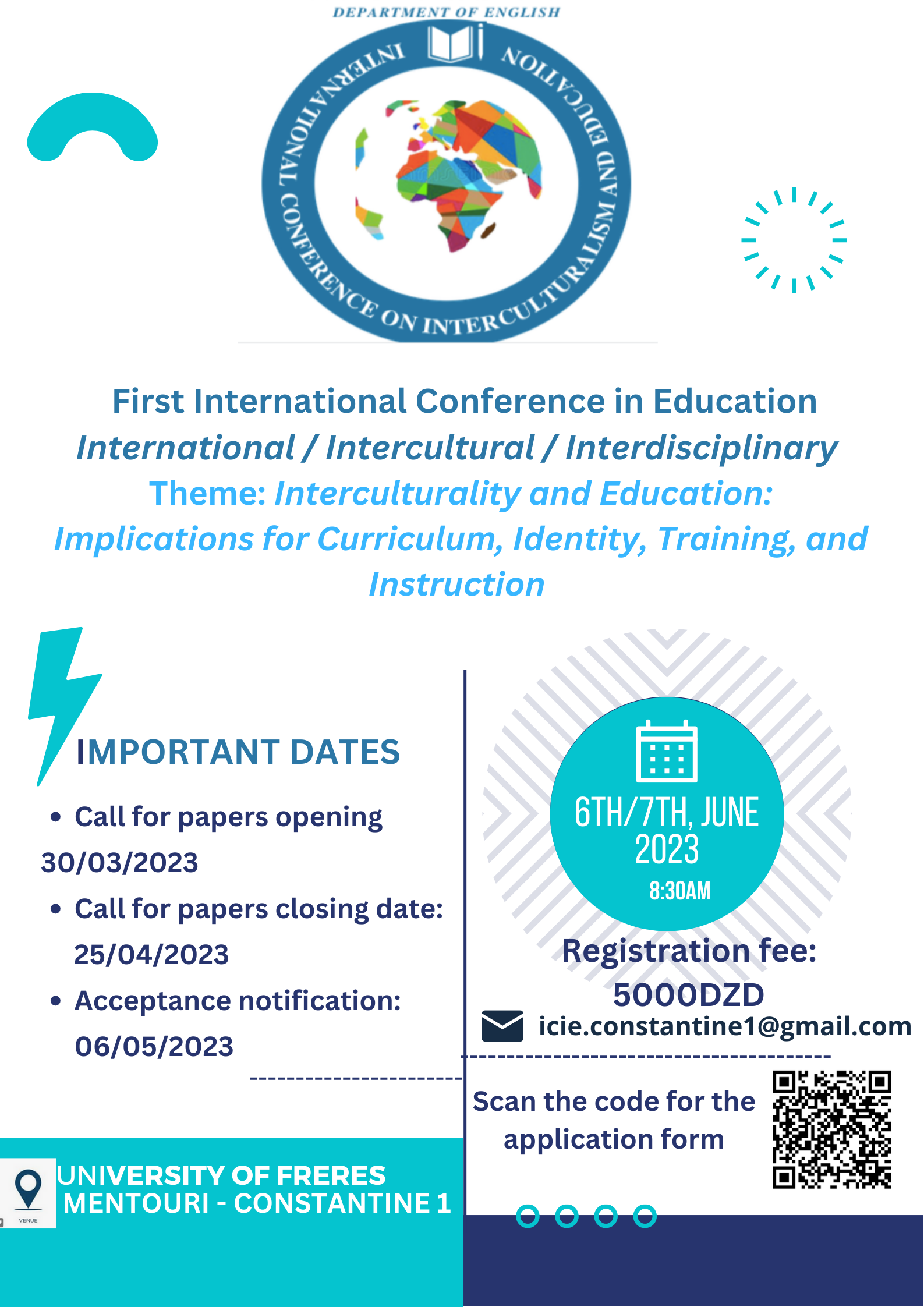
This international conference is an intellectual and educational gathering that represents a quality opportunity to explore common themes in education and develop a research agenda which develops interdisciplinary discussion on themes ranging from foreign language instruction, the impact of globalization on learners’ and teachers’ identities, to implications of interculturalism on students’ learning, identities, and interculturalism. It aims at;
- Gathering new views and perspectives of interculturality and its underpinning for
educational, societal, and identity development/mapping.
- promoting and facilitating new multifaceted approaches to one of the core issues
of our time namely globalization and the forms of intercultural flows and growth that it
entails.
- This conference would contribute to raising awareness of how current
intercultural flows cut across the world of education, and its impact on societies and institutions and educational practices around the world.
- The conference presents those taking part in it with three unique dimensions of
experience, encouraging interdisciplinary discussion, facilitating heightened intercultural
awareness and promoting international educational exchange.
The conference theme has 5 different axes
- Intercultural teaching and learning
- International education
- Identity and cultural studies
- Professional training
- Education and difference
This conference is very inclusive in its themes and encourages researchers to collaborate and engage in fruitful interdisciplinary academic discussions on the national and international level with researchers such as:
Prof. Michael Byram
Prof. Claire Kramsch
Dr. Sarah Hopkyns
Dr. Trevor Grimshaw
GFULANGUES : La gouvernance des formations universitaires en langues : quels défis pour l'assurance qualité ?
Friday, 31 March 2023 12:52 Written by Redaction webSite du colloque: https://gfulangues.sciencesconf.org/
ARGUMENTAIRE ET AXES DU COLLOQUE
La gouvernance est un domaine transversal et névralgique (DFAE, 2007) qui joue un rôle central dans tous les domaines de l'enseignement supérieur (Référentiel National de l'Assurance Qualité, 2016). Elle est considérée comme la locomotive qui permettra de favoriser le développement de l'université en faveur d'une éducation de qualité en phase avec les besoins de la société.
Selon l'Organisation de Coopération et de Développement Économiques (OCDE)(2007), la gouvernance est un système qui englobe différentes structures et les ressources qui leur sont allouées. Ces deux entités sont étroitement liées, et la gouvernance est guidée par la politique d'enseignement supérieur qui est mise en œuvre et évaluée par les organes de contrôle. La gouvernance met également l'accent sur l'impact des relations informelles sur la gestion et le fonctionnement des structures.
Au niveau national, les structures locales comprennent les universités et leurs composantes, tandis que la structure globale se compose du Ministère de l'Enseignement Supérieur du gouvernement et de l'État. Ces deux organes entretiennent des relations entre elles grâce aux ressources allouées telles que les budgets, les subventions et les conventions. En outre, la gouvernance comprend le mécanisme de fonctionnement du pouvoir à différents niveaux pour prendre des décisions dans divers contextes.
Elle s’arrête également sur les acteurs et leurs relations (la relation État, citoyen/citoyennes, la relation État/secteurs privés) ainsi que sur les modes de gouvernance informelle qualifiés « d’habitudes ».
Dans le cadre de ce colloque national, la gouvernance des formations universitaires en général, et des formations universitaires en langues en particulier, sera examinée afin de dresser un état de leur réalité et d’évaluer leur contribution à l'assurance qualité de notre enseignement supérieur à la lumière des indicateurs en rapport avec les composantes de la gouvernance citées ci-dessus.
Plusieurs objectifs sont poursuivis, notamment l'identification de la lignée politique des formations universitaires en langues, des structures de leurs conceptions et des ressources qui les sous-tendent, ainsi que des organes de leur contrôle. Un état des lieux sera dressé sur leur mode de gouvernance informelle et leurs structures et organisation seront analysées au moyen d'apports interdisciplinaires tels que l'ingénierie de formation, l'ingénierie pédagogique et la didactique professionnelle. Les formations universitaires en langues seront également situées par rapport aux autres domaines de l'enseignement supérieur, tels que la recherche scientifique, la gouvernance, la coopération et l'environnement socio-économique, afin de déceler leur contribution à la qualité de l'enseignement supérieur.
Pour atteindre ces objectifs, plusieurs axes seront abordés, notamment
- La (s) politique(s) nationale (s) de gouvernance des formations universitaires en langues.
- Les structures et les organes de conceptions et de contrôles des formations universitaires en langues.
- Les conceptions des formations universitaires en langues.
- Le (les) rôle(s ) et le(s) enjeu(x) des formations universitaires en langues.
- Les formations universitaires en langues et les domaines d’évaluation de l’enseignement supérieur national.
- Les formations universitaires en langues et leur contribution à l’économie nationale.
- Etc.
CONFÉRENCIERS-INVITÉS
Pr. Sadek Bakouche. Professeur des universités en sciences économiques. Président de la Commission d’Implémentation de l’Assurance Qualité dans l’Enseignement Supérieur(CIAQES). Ministère de l’Enseignement Supérieur et de la Recherche Scientifique. Expert en assurance qualité auprès de plusieurs organismes internationaux (Unicef, l’ONUDI (Organisation des Nations Unies pour le développement Industriel), et nationaux (Ministère de l’Education Nationale, Ministère de l’Enseignement Supérieur et de la Recherche Scientifique). Expert/Auditeur international auprès de l’UE et UA. Concepteur des programmes de l’ENSM (École Nationale Supérieure de Management d’Alger. Élaboration de syllabus des masters en management des organisations et en management de la qualité. Contributeur à la formation (FIE) des ingénieurs des grandes écoles à l’entrepreneuriat.
Pr. Mebarek Bahri. Professeur des universités en Sciences et Technologies. Membre du Conseil National d’Éthique et de Déontologie Universitaire. Membre de la Commission Nationale de la mise à jour du Référentiel National de l’Assurance Qualité dans l’Enseignement Supérieur (RENAQES). Responsable de la Cellule de l’Assurance Qualité de l’université de Biskra.
Pr. Abdelouaheb Dakhia. Professeur de l’enseignement supérieur en didactique des langues et des cultures à l’université de Biskra. Président du Comité Pédagogique Nationale du Domaine (CPND) Lettres et Langues étrangères. Responsable au sein des réseaux de « l’École Doctorale Algéro-Française » (EDAF) et de « Langue Française et Expression Francophone » (LaFEF).
CALENDRIER
- Diffusion de l’appel à communication : 19 mars 2023
- Date limite de soumission des propositions : 12 mai 2023
- Notification aux participant (e)s : 26 mai 2023
- Diffusion du programme définitif : 25 juin 2023
- Date de la tenue du colloque : 27-28 juin 2023
Références bibliographiques
- Bakouche, S (dir.)(2011). L’université algérienne et sa gouvernance. Alger : CREAD.
- Département Fédéral des Affaires Etrangères (DFAE) (2007). La gouvernance comme thème transversal : Guide d’orientation pour sa mise en œuvre. Editeur : Direction du développement et de la coopération (DDC) file:///C:/Users/LENOVO/Downloads/156840-governance-transversal-theme_FR%20(1).pdf
- Huron, D. & Spieth, G. (2013). Valeurs publiques et formations universitaires : le cas des masters en management public. Gestion et management public, 2(1), 31-54. https://doi.org/10.3917/gmp.021.0031
- Huet, J. & Neiter, V. (2016). Gouvernance des organisations: Exemples sectoriels, enjeux transverses. Paris : Dunod https://doi.org/10.3917/dunod.huet.2016.01
- Joumard, R. (2009). Le concept de gouvernance. ffhal-00489237f
- Ministère de l’Enseignement Supérieur et de la Recherche Scientifique (2016). Référentiel National de l’Assurance Qualité dans l’Enseignement Supérieur (RNAQES).
- Vinokur, A. (2017). La gouvernance des universités par la qualité, Recherche et pratiques pédagogiques en langues de spécialité, 36 (01). http://journals.openedition.org/apliut/5571
International Online Symposium Investigative Tools of Scientific Research in Art and Languages: Adaptations and Challenges of a Paradigm Shift June 20th and 21st, 2023
Sunday, 12 March 2023 10:58 Written by Redaction webOverview
Few years ago, remonstrations, strikes, Hirak, Covid-19 pandemic, and many other events have marked the human life at the national level. However, the international world has also faced the same problems and the findings were identical. The “Arab Spring” which has created major tensions in some Arab countries, has also engendered conflicts and wars in other areas throughout the world. The massive lockdowns following Covid-19 have also had a significant impact on various educational and academic practices. Lastly, the increasing advent of artificial intelligence in the university context will inevitably change the academic landscape both in terms of teaching and research (The challenge is to take advantage of this intelligence while remaining within an ethical framework).
As various fields and domains have undertaken some procedures and actions in order to face those new phenomena, research in Art and Languages has also adopted new practices in response to these changes to be adapted. To face this ever-changing landscape, new enterprise paradigms of scientific investigation are constantly being established, but are totally different from the simple adaptive measures usually undertaken.
Obviously, exploring the phenomena related to Art and Languages, in this new context, requires modifications and adaptations on these investigative tools which seem to emigrate from a status of “instruments of power” where the researcher is fairly familiar with his field of investigation, towards a status of "co-managed instruments" as Humbert and Merlo predicted in1978.
Consequently, we are intrigued by those new means used by researchers to collect the data and information constituting their research corpus, and would ask for an answer to these major questions which arise in our field: how did these women and men of science work in difficult, restricting and sometimes dangerous circumstances in order to carry out their research? How were data and information collection techniques implemented (observations, questionnaires, interviews, etc.) ? How did scholars obtain the necessary documentation for their investigations and researches ? How is research initiation accomplished within the existence of AI (Artificial Intelligence)?
The need for a literature which reflects these extraordinary, unique, and inventive experiences
is required more and more throughout the time. Scholar can no longer continue to refer only to theoretical works, certainly unavoidable, but whose standards have been set up in distinctly different contexts. Nowadays, everything is recreating and reinventing itself in response to certain situations characterized by pedagogical and scientific rupture.
Accordingly, we would like to invite university scholars to meet through this international colloquium, in order to answer the questions mentioned above and share their experiences by putting at the forefront the investigation’s tools used and adapted by them in the teaching process.
The study must be carried out from three spheres of analysis: The first sphere is totally exploratory, some questions must be raised to demonstrate the manner in which tools have been implemented and adapted by scholars, in order to overcome the constraints imposed by these unprecedented changes in human history. These actors should, in a second sphere of analysis, to detect inventive and creative practices used during their experiments of adaptation, especially those which would help to develop the spirit of entrepreneurship in scientific research. Finally, the third level of analysis is intended to discuss perspectives and guidelines on investigation’s tools and methods, particularly in Art and Languages domain, which could be introduced as new practices or even a change in the paradigm of actions.
Symposium Objectives:
- Discover the various tools and experiences of investigations in scientific research during new and unprecedented
- Open up perspectives that prepare the foundations for a new application of these
- Involve the various socio-economic actors as an alternative in academic research in the field of
- Support the initiation of artificial intelligence in scientific research at the
Focus and Scope:
- Investigative tools in didactics within new
- Current challenges of scientific investigation in
- New Investigative Paradigms in Language
- ICT (Information and Communication Technologies) and AI (Artificial Intelligence) in the teaching practice of initiation to research in Master
- Socio-economic actors and scientific research at the university: towards the development of the entrepreneurial
Important Dates :
- Abstract Submission Deadline : April 15th, 2023
- Conference Day : 20 et 21 juin 2023
- Participation Mode :
Online communication
- Submission Guidelines : Abstracts must not exceed 500 words maximum and should comprise the following information :
-Surname & First name, Institution of attachment, Function/grade, E-Mail.
- Brief biobibliographical list (in separate file)
- Communication languages : French, Arabic and
- Submission Link:
Would you please submit your abstracts and papers via the following email address: This email address is being protected from spambots. You need JavaScript enabled to view it.
Journées nationales: Biotechnologie et Bioinformatique
Monday, 26 September 2022 12:33 Written by Redaction webThe First International Workshop on Applied Mathematics 1st-IWAM'2022, 6-8 December, 2022 Constantine, Algeria
Monday, 26 September 2022 12:32 Written by Redaction Web 1Le site web du international on applied mathematics IWAM'2022 est : https://sites.google.com/view/iwam2022/home
- Brochure 1 workshop internationale on applied mathematics IWAM'2022
- Brochure 2 workshop internationale on applied mathematics IWAM'2022


